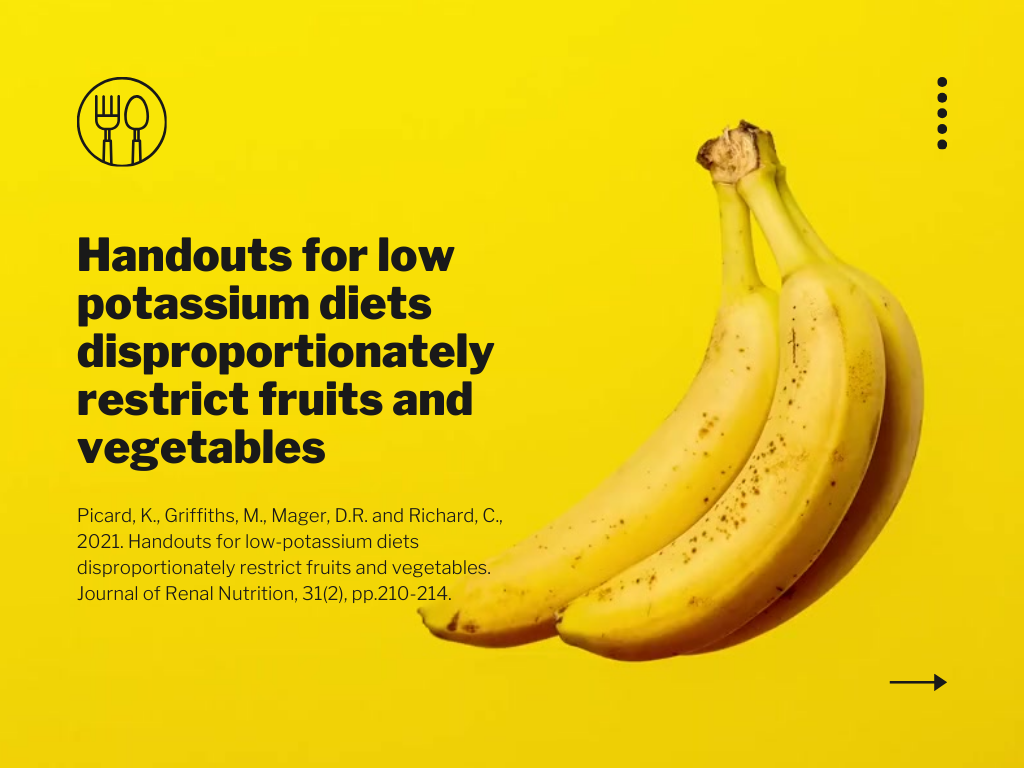Full reference: Picard, K., Griffiths, M., Mager, D.R. and Richard, C., 2021. Handouts for low-potassium diets disproportionately restrict fruits and vegetables. Journal of Renal Nutrition, 31(2), pp.210-214.
What we did – Methods
This a study that reviews patient education materials on low-potassium diet messaging of patient facing handouts. Handouts used were from government health and renal program websites in Canadian provinces and territories.
What we found – Results
- Many patient handouts recommend restricting or limiting specific foods or food groups, with a focus on fruits and vegetables.
- The main founds restricted were fruits and vegetables, followed by plant proteins, other foods (such as dairy, coffee, tea, chocolate). This was by a recommendation to restrict whole grains.
- Some handouts mention animal-based protein as a source of high-potassium foods. Few advise avoiding potassium-based salt substitutes and potassium additives.
- There was wide range of foods to be either avoided or limited. There were variations in recommendations across different handouts.
Main discussion points
- We encouraged considering potassium additives in ultra-processed foods, as they can significantly increase potassium content.
- We emphasized that North Americans consumed a lot of ultra-processed foods.
Take Away
Dietary recommendations for low potassium diets would benefit from re-evaluation. Specifically, to consider potassium additives in ultra-processed foods.




You helped me a lot with this post. I love the subject and I hope you continue to write excellent articles like this.